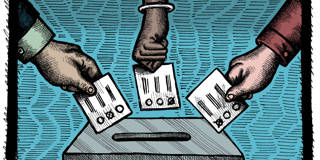Harmonizing Europe’s Elections
The EU should consider an audacious idea: synchronization of Europe’s political clocks, so that all national elections are held within the same year – or even the same month. A common election calendar would free up scarce resources and focus policymakers’ attention more effectively, thus maximizing the benefits of vital programs.
MADRID – The European Union is in the midst of a far-reaching debate about its future role. What does it stand for? Whom does it represent? How should it work with its member states? And what should it offer its citizens? Now is the time for some innovative thinking – including about how to remove obstacles to implementation of the EU’s bold plans.
Many EU initiatives – from financial and regulatory harmonization to gender equality – make good sense. But if they are to survive Europe’s crises, they must be supported by timely political decision-making, familiar regulatory frameworks across member states, and an EU-wide commitment to good governance and ethics.
There is no shortage of schemes. Last year, Italian Prime Minister Mario Monti, with the backing of the four largest eurozone economies – Germany, France, Italy, and Spain – called for a €130 billion ($170 billion) stimulus package to improve competitiveness across the EU. Like many others in the business community, I applauded this move. Similarly, the €6 billion package approved by the EU in August to help reduce endemic youth unemployment, especially in Spain, must be seen as a step in the right direction.



MADRID – The European Union is in the midst of a far-reaching debate about its future role. What does it stand for? Whom does it represent? How should it work with its member states? And what should it offer its citizens? Now is the time for some innovative thinking – including about how to remove obstacles to implementation of the EU’s bold plans.
Many EU initiatives – from financial and regulatory harmonization to gender equality – make good sense. But if they are to survive Europe’s crises, they must be supported by timely political decision-making, familiar regulatory frameworks across member states, and an EU-wide commitment to good governance and ethics.
There is no shortage of schemes. Last year, Italian Prime Minister Mario Monti, with the backing of the four largest eurozone economies – Germany, France, Italy, and Spain – called for a €130 billion ($170 billion) stimulus package to improve competitiveness across the EU. Like many others in the business community, I applauded this move. Similarly, the €6 billion package approved by the EU in August to help reduce endemic youth unemployment, especially in Spain, must be seen as a step in the right direction.